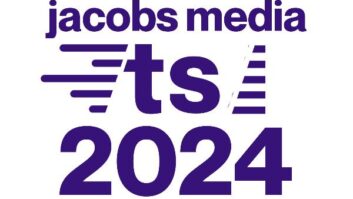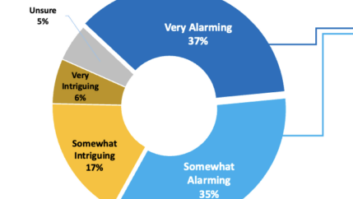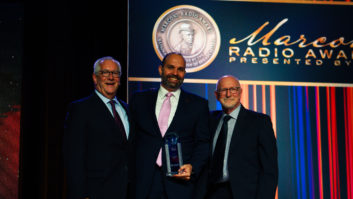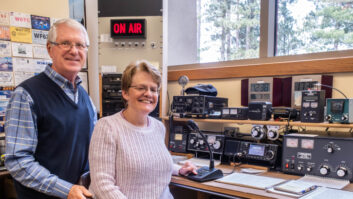Fred Jacobs is founder of Jacobs Media.
Everywhere we look, we see the same signs. Businesses that are serious about remaining relevant over the next five years turning the focus over to consumers because they are in control. The days when big institutions — banks, telecommunication companies, and media companies — operated in a top-down fashion where they dictated the rules are over.
Today’s post focuses on two big categories – bankers and CPAs — and how they’ve not only gotten the message but are putting the notion of “customer first” into practice. Mr. Potter would not be happy. Consider the fact that leaders in these staid, conservative industries are not only getting the message — they are innovating their way into the future by acknowledging that consumers are in the driver’s seat.
The impetus for this post came from last week’s Radio’s Most Innovative honoree — the ubiquitous and financially savvy Dave Ramsey — who lives this philosophy with his mega-brand. At nearly 500 employees, he has the infrastructure to be everywhere. But his team has also made some very smart decisions about which platforms make sense.
Dave isn’t just smart about money and investing — those are categories that people associate with his empire. In fact, Ramseyville is successful because of its focus on the customer:
As Dave told us, “One of the most rapidly changing environments today is how individuals consume content. It has always been our intent to meet our consumers where they are and make a connection. We also must acknowledge that the consumer is in control and it’s our responsibility to be available when, where, and how they chose to consume.”
But if you think that it is just media companies that are being challenged to acknowledge changing consumer habits, think again. The banking, investment, and accounting worlds are in the very same boat.
For most of our lives, these institutions were run as “good old boy” businesses, focusing on checking account fees and giving away toasters and electric can openers when customers opened accounts. Today, banks have made a huge shift to mobile and digital engagement. It not only attracts younger customers, but it’s also profitable. As is very likely the case with your banks, you can now deposit checks on your smartphone instead of going into a bank, standing in line, and handing them to a teller.
As more and more consumers want to control their environments, financial institutions and businesses of all kinds need to step up and be present. In a recent McKinsey article, Citigroup CEO Michael L. Corbat noted that his brand’s growth will come from a customer focus:
“We allow people to be the architects of the information they’d like to receive, and when they’d like to receive it.”
For Citigroup, Corbat doesn’t see growth coming from buying more banks, but organically. A focus on clients and customers goes to the heart of his corporation’s vision. He notes that digital has had a revolutionary impact on his company, forcing Citi to take a hard look at how customers use his assets. Studying online banking and other consumer touchpoints allowed his team to assess the CX:
“Digital has been very powerful in terms of our ability to look at our customers holistically, of having that information and being able to pull that information together so that we can see the entire financial lives of our customers. We can service them better, we can help them make better decisions, and we can be much more focused in terms of the products that we’re offering. That resonates with them.”
Not to be outdone, one of the biggest accounting firms in the world, Deloitte just announced the launch of a new digital studio in Canberra (Australia) “to specifically target the rapid increase in demand for transformational digital services in government.” This brings the number of these Deloitte Digital studios up to 21 worldwide.
Frank Farrall, Deloitte Digital’s lead partner, sees it this way: “Digital provides new opportunities to change the ecosystem in which citizens, businesses, and other organizations interact with government and each other.”
When we see banking and accounting firms stepping up and acknowledging the changing consumer, keep in mind these are the very same institutions that radio and media companies interface with to facilitate the flow of capital. How broadcast companies build their infrastructures and create their strategies moving forward will be observed by these institutions that are reinventing themselves.
Radio is still adjusting to the reality that the consumer is, in fact, running the show and spearheading many of these seismic changes at companies in the U.S. and around the globe.
It is why our mobile app company, jācapps, has launched its App Everywhere campaign, acknowledging that a mobile strategy is as important as the apps themselves. It is why we are developing apps for smart TVs, smart watches, and of course, the “connected car.” Radio needs to have presence and accessibility wherever the listeners are.
Virtually no one is buying a radio for their home anymore, but they are buying Internet-enabled TVs. Television is the new home entertainment system, and having a radio station icon on the screen next to Netflix, Hulu, and yes, Pandora is simply smart business.
It is why we’ve brought Seth Resler on board, to help radio connect the “digital dots” on both the product and revenue side of the spectrum.
And it’s why we continue to design and execute our Techsurveys — both in commercial and public radio. The way you serve the consumer is to understand how she thinks and acts – today and in the future. Some complain that it’s complicated and expensive.
But when you look at what experts from Dave Ramsey to Citi to Deloitte seeing the changing consumer as the driver, it’s time to pay attention. And as all the experts in this post would likely tell you, consumer-focused strategies lead to more business, and ultimately, survival.
All of these companies and brands have done their homework. They’ve made the investment in dollars and time to gain a better understanding of the consumer. They know more about their customers then the average radio broadcaster does — plain and simple. In the long run, these strategies save companies money and put them on a course in which they can remain relevant for years to come.
It’s not about simply “checking the digital boxes” by having a Snapchat account, developing an Android app, playing the highest testing songs, having a Voltair in the rack room, or building a new website. It’s about having a fundamental understanding of the changing consumer, and building content and revenue strategies around providing a better, seamless, and engaging experience.
Radio’s never had to think this way before.
It does now.
Because its bankers are. Say goodbye to Pottersville.
Read more of Fred Jacobs at the Jacobs Media blog.











